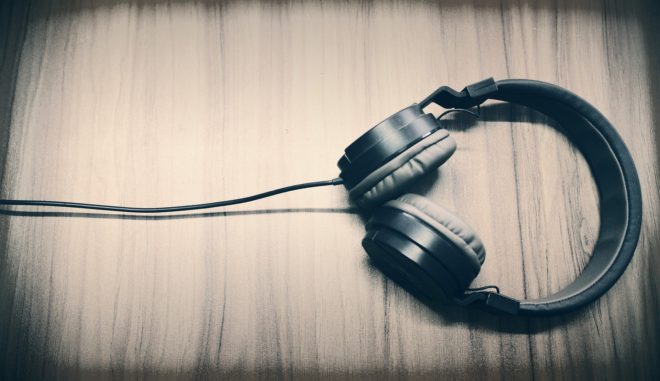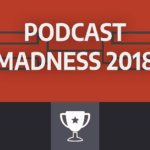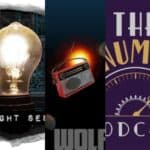How podcasts are changing the face of recovery

The concept of ‘’recovery’’ from substance addiction long pre-dates the advent of podcasts. While addiction was a topic traditionally bound to the confidential settings of treatment centers and support groups, the birth of the podcast has developed a new platform from which experiences can be widely discussed.
The traditional Alcoholics Anonymous (AA) model, which has long been synonymous with alcohol-free living, is at the center of a number of recovery podcasts. This model requires followers to attend regular meetings and to be part of an active recovery community, and many devotees feel that listening to podcasts can complement this ethos. Don*, a 48 year-old man who has been in AA for over fifteen years, finds recovery podcasts helpful in his continued sobriety. ‘’Listening to AA-focused podcasts on my commute reinforces what I’m hearing in my evening meetings. It means my head is constantly being filled with encouragement to stay sober’’.
The popularity of the podcast has meant widespread availability of different perspectives on sobriety. A growing movement in the sober community has pointed towards alternative philosophies for those who don’t feel AA is the best fit for their needs. One such person is Lana*, a 23 year-old college graduate who began her journey as a self-described ‘’sober-curious’’ about six months ago. ‘’I wasn’t happy with my relationship with alcohol, but I would still stop short at calling myself an alcoholic. The idea of joining AA seemed way too extreme for me. Podcasts like Home [hosted by Laura McKowen and Holly Whitaker] and This Naked Mind [hosted by Annie Grace] met me exactly where I was at. They taught me that giving up alcohol can be a pro-active health choice, rather than a surrender to some sort of higher power. I don’t think I would have realized quitting in this way was an option if it wasn’t for these podcasts – being a young person who has given up alcohol is rare, but when I listen to these women talk I feel way less alone in my decision.’’
Some argue that the effect of recovery podcasts is largely subliminal, with many choosing to listen to the same podcast episodes on repeat. Ali*, a 36 year-old stay-at-home mother who is currently on her third attempt to maintain sobriety from alcohol, even listens to podcasts while sleeping. ‘’I feel like so much of my urge to drink comes from messages I’m taking in throughout the day. Every movie I watch has some sort of alcoholic product placement, every magazine I open has a number of print advertisements for alcohol companies. Even things as silly as birthday cards and memes seem to be full of messages about Moms needing wine. I guess for me I’m trying to counteract that. I’m making a conscious effort to put messages about not drinking into my subconscious.’’
Though the evidence to support this theory of subconscious learning is limited, Ali is not alone in her technique. Annie Grace, the author of quit-lit sensation This Naked Mind and host of the podcast of the same name, is open about the fact that her audio uses repetition of the same messages to subconsciously change the way the brain views alcohol. As a former advertising executive, Grace is familiar with the manner in which similar techniques are used by the alcohol industry to subconsciously create a craving to drink.
Indeed, hypnotherapy – which, by extremely reductive definition, involves repeating particular verbal messages to a person while they are in a state of extreme suggestibility with the intent of connecting with their unconscious mind – follows a similar premise. There is some scientific evidence to support the effectiveness of hypnotherapy as an intervention, and a large number of anecdotal accounts of its success in breaking addictions and phobias. By that logic, one could argue that listening to repeatedly listening to podcasts with a particular message in a state of deep relaxation, such as when going to sleep, could result in a hypnosis-like effect. Aaron*, 32, a former self-labelled problem-drinker who works in finance, credits this approach in inspiring him to completely stop his alcohol consumption. ‘’I started to think of alcohol as flavored poison. The smell of it began to turn my stomach. I’m now about as tempted to drink a beer at a social occasion as I am to drink a glass of petrol. The only thing I did to get to this point was to continually listen to podcasts and audiobooks that reinforced this message until it began to stick.’’
Recent evidence suggests that while it is extremely difficult for the brain to learn concrete information while we sleep (bad news for those who listen to study notes in slumber), it can pair learn to form subconscious sensory associations (examples of this here and here). Listening to alcohol or other substances being described as disgusting while in a sleep-like state could therefore lead to this link being formed in one’s subconscious.
It is difficult to form any concrete scientific conclusion about whether podcasts are neurologically useful in breaking the cycle of addiction. It would, however, be difficult to argue against the anecdotal evidence of the recovery podcast movement providing choice of approach and social comfort to those who are seeking to give up alcohol.
*Names changed to protect confidentiality













Comments
Comments are closed.